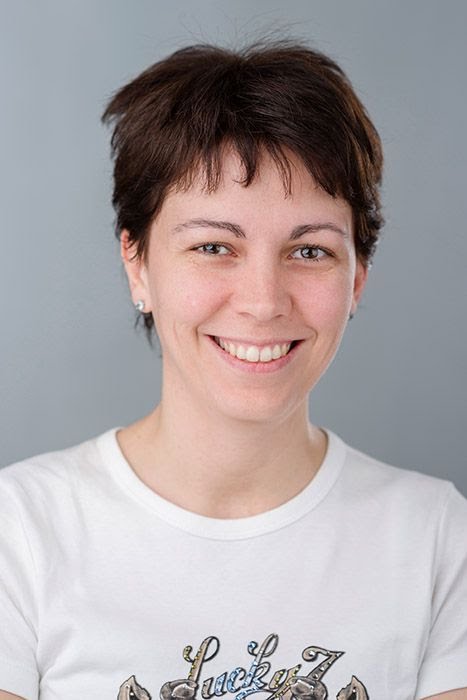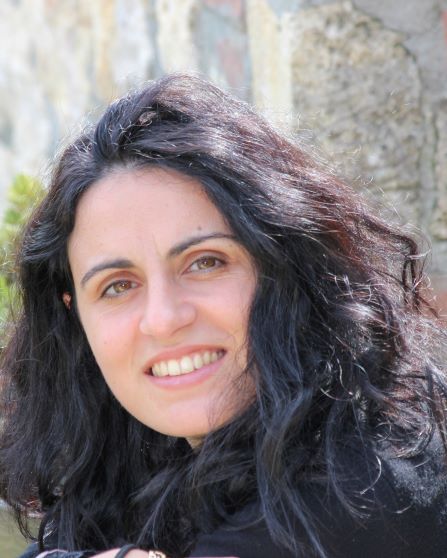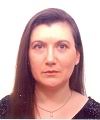Studying at the University of Verona
Here you can find information on the organisational aspects of the Programme, lecture timetables, learning activities and useful contact details for your time at the University, from enrolment to graduation.
Academic calendar
The academic calendar shows the deadlines and scheduled events that are relevant to students, teaching and technical-administrative staff of the University. Public holidays and University closures are also indicated. The academic year normally begins on 1 October each year and ends on 30 September of the following year.
Course calendar
The Academic Calendar sets out the degree programme lecture and exam timetables, as well as the relevant university closure dates..
| Period | From | To |
|---|---|---|
| First semester bachelor degree | Sep 16, 2019 | Jan 10, 2020 |
| Second semester bachelor degree | Feb 17, 2020 | Jun 5, 2020 |
| Session | From | To |
|---|---|---|
| First semester intermediate tests | Nov 4, 2019 | Nov 8, 2019 |
| Winter exam session | Jan 13, 2020 | Feb 14, 2020 |
| Second semester intermediate tests | Apr 15, 2020 | Apr 17, 2020 |
| Summer session exam | Jun 8, 2020 | Jul 10, 2020 |
| Autumn Session exams | Aug 24, 2020 | Sep 11, 2020 |
| Session | From | To |
|---|---|---|
| Autumn Session | Dec 2, 2019 | Dec 4, 2019 |
| Winter Session | Apr 7, 2020 | Apr 9, 2020 |
| Summer session | Sep 7, 2020 | Sep 9, 2020 |
Exam calendar
Exam dates and rounds are managed by the relevant Economics Teaching and Student Services Unit.
To view all the exam sessions available, please use the Exam dashboard on ESSE3.
If you forgot your login details or have problems logging in, please contact the relevant IT HelpDesk, or check the login details recovery web page.
Academic staff
Borello Giuliana
 giuliana.borello@univr.it
giuliana.borello@univr.it
 045 802 8493
045 802 8493
 stefano.gatti@univr.it
stefano.gatti@univr.it

Manzoni Elena
 elena.manzoni@univr.it
elena.manzoni@univr.it
 8783
8783
 martina.menon@univr.it
martina.menon@univr.it
Study Plan
The Study Plan includes all modules, teaching and learning activities that each student will need to undertake during their time at the University.
Please select your Study Plan based on your enrollment year.
1° Year
| Modules | Credits | TAF | SSD |
|---|
2° Year activated in the A.Y. 2020/2021
| Modules | Credits | TAF | SSD |
|---|
3° Year activated in the A.Y. 2021/2022
| Modules | Credits | TAF | SSD |
|---|
| Modules | Credits | TAF | SSD |
|---|
| Modules | Credits | TAF | SSD |
|---|
| Modules | Credits | TAF | SSD |
|---|
| Modules | Credits | TAF | SSD |
|---|
Legend | Type of training activity (TTA)
TAF (Type of Educational Activity) All courses and activities are classified into different types of educational activities, indicated by a letter.
Type D and Type F activities
Nei piani didattici di ciascun Corso di studio è previsto l’obbligo di conseguire un certo numero di crediti formativi mediante attività a scelta (chiamate anche "di tipologia D e F").
Oltre che in insegnamenti previsti nei piani didattici di altri corsi di studio e in certificazioni linguistiche o informatiche secondo quanto specificato nei regolamenti di ciascun corso, tali attività possono consistere anche in iniziative extracurriculari di contenuto vario, quali ad esempio la partecipazione a un seminario o a un ciclo di seminari, la frequenza di laboratori didattici, lo svolgimento di project work, stage aggiuntivo, eccetera.
Come per ogni altra attività a scelta, è necessario che anche queste non costituiscano un duplicato di conoscenze e competenze già acquisite dallo studente.
Quelle elencate in questa pagina sono le iniziative extracurriculari che sono state approvate dal Consiglio della Scuola di Economia e Management e quindi consentono a chi vi partecipa l'acquisizione dei CFU specificati, alle condizioni riportate nelle pagine di dettaglio di ciascuna iniziativa.
Si ricorda in proposito che:
- tutte queste iniziative richiedono, per l'acquisizione dei relativi CFU, il superamento di una prova di verifica delle competenze acquisite, secondo le indicazioni contenute nella sezione "Modalità d'esame" della singola attività;
- lo studente è tenuto a inserire nel proprio piano degli studi l'attività prescelta e a iscriversi all'appello appositamente creato per la verbalizzazione, la cui data viene stabilita dal docente di riferimento e pubblicata nella sezione "Modalità d'esame" della singola attività.
ATTENZIONE: Per essere ammessi a sostenere una qualsiasi attività didattica, inlcuse quelle a scelta, è necessario essere iscritti all'anno di corso in cui essa viene offerta. Si raccomanda, pertanto, ai laureandi delle sessioni di dicembre e aprile di NON svolgere attività extracurriculari del nuovo anno accademico, cui loro non risultano iscritti, essendo tali sessioni di laurea con validità riferita all'anno accademico precedente. Quindi, per attività svolte in un anno accademico cui non si è iscritti, non si potrà dar luogo a riconoscimento di CFU.
| years | Modules | TAF | Teacher |
|---|---|---|---|
| 1° 2° 3° | Enactus Verona 2020 | D |
Paola Signori
(Coordinator)
|
| 1° 2° 3° | Parlare in pubblico e economic writing | D |
Martina Menon
(Coordinator)
|
| 1° 2° 3° | Samsung Innovation Camp | D |
Marco Minozzo
(Coordinator)
|
| 1° 2° 3° | Simulation and Implementation of Economic Policies | D |
Federico Perali
(Coordinator)
|
| years | Modules | TAF | Teacher |
|---|---|---|---|
| 1° 2° 3° | Simulation and Implementation of Economic Policies | D |
Federico Perali
(Coordinator)
|
| years | Modules | TAF | Teacher |
|---|---|---|---|
| 1° 2° 3° | Parlare in pubblico e economic writing | D |
Martina Menon
(Coordinator)
|
Principles of taxation (2021/2022)
Teaching code
4S00411
Teacher
Coordinator
Credits
6
Language
Italian
Scientific Disciplinary Sector (SSD)
IUS/12 - TAX LAW
Period
secondo semestre (lauree) dal Feb 21, 2022 al Jun 1, 2022.
Learning outcomes
This course aims to allow students to be prepared on the Constitutional principles concerning the Italian Tax system, on the rights and obligations of taxpayers, on the direct taxations (the so-called “Irpef” and “Ires” taxation) as well as on VAT from the domestic and European perspective. At the end of the lessons, the student has to prove to know the important Constitutional Principles for Tax field, the rules for the taxation concerning individuals or legal persons (resident or non-resident), the general criteria on indirect taxation system of domestic and international trade (VAT). Furthermore, students will have to interpret and apply the law to individual cases, using legal language and learned methods.
Program
TAXES AND RULES OF TAXATION
1. THE ITALIAN TAXATION SYSTEM: RIGHTS AND DUTIES OF TAXPAYERS
2. INCOME TAXES (IRPEF and IRES)
I) evolution of income taxes system;
II) fundamental rules;
III) type of individual incomes;
IV) business profits;
V) no-profit organizations and non-residence subjects;
VI) corporate groups.
3. VALUE ADDED TAX
Physiognomy of V.A.T.; 2. Symptoms of ability to pay V.A.T.; 3. relevant transactions: the supply of goods; 4. Performances and services; 5. The subjective point: the pursuit of undertakings, trades and professions; 6. The area profile relevant transaction; 7. The timing of the relevant transaction and chargeability of V.A.T.; 8. The sales "non-taxable": a) goods and services supplied to non-EU countries 9. Imports; 10. The intra-Community supplies 11. Exempt transactions 12. Taxable amount and rate of each transaction taxed with V.A.T.; 13 obligation of billing and compensation, right of deduction of VAT on purchases; 14 formal obligations; 15. Rules regarding procedure: liquidations, payments, statements annual repayments
Textbooks:
- FONDAMENTI DI DIRITTO TRIBUTARIO, AA.VV., 2022, Wolters Kluwer Italia, capitoli da 1 a 5
oppure
- PRINCIPI DI DIRITTO TRIBUTARIO, SALVATORE LA ROSA, 2019, GIAPPICHELLI, TORINO: da pag. 1 a pag. 25; da pag. 110; da pag. 112 a pag. 114; da pag. 141 a pag. 176; da pag. 203 a pag. 217; da pag. 229 a pag. 235
About V.A.T.:
- L’Imposta sul Valore Aggiunto sulle operazioni transnazionali, Maria Grazia Ortoleva, Quiedit, 2013
Bibliography
Examination Methods
The exam – which aim is to evaluate the learning progress regarding basic law notions, the student's capability to use proper legal jargon, to link the different legal institutions and to understand their reason – will take place according to procedures here described.
A) Students who intend to make use of the possibility to take the intermediate exam "a voto parziale", will undergo a double-step examination.
a1) Firstly they will take the test "a voto parziale", which will cover the first half of the topic covered during the course (sources, interpretation of tributary norms, rights and duties of taxpayers, tax statements and payments obligation, rights and duties, acts withholding and tax replacements; Irpef and Ires) will consist of:
- a closed-response test (which will amount to 30% of final grade), the grade evaluation is on a thirtieth scale, is made of twelve questions: for each correct answer a point is assigned, for each mistake a quarter of a point is subtracted, no answer does not change the score. This exam lasts 20 min.
In order to reach the pass mark (18/30) students have to answer correctly 7 out of 12 questions.
- number two essay questions (worth 70% of final grade) aimed at evaluating students’ ability to make connections between different topics. This exam lasts 20 min. In order to reach the pass mark (18/30) students have to answer correctly at least one out of two question.
The first part, that will last 40 minutes, will be considered passed if both subparts are passed.
The evaluation will be considered valid only for the first exam period after students' attendance.
The writing test is opened to both attending and non-attending students.
a2) The second exam is related to the topics we dealt with in the second part of the course (VAT). This test consist of:
- a multiple choice test which will be 30% of the final grade. This part is made of 12 questions, for every right answer is assigned one point, for every wrong answer is subtracted 1/4 point, non-given answers are not worth any point. This part of the test is going to last 20 minutes. In order to reach the pass mark (18/30) students have to reach a minimum score of 7/12.
- two essay questions (70% of the final grade) are going to be focused on students’ ability to make connections between different topics. This part lasts 20 minutes. In order to reach the pass mark (18/30) students have to answer at least at one of the questions.
The second test lasts in total 40 minutes. It is passed only if the student reaches the pass mark both in the multiple choice part and in the essay questions. The final grade is made up of the arithmetic mean between the two grades.
B) Students, that decide not to take the midterm or students who both haven’t reach the pass mark or have refused their grade, have to take another exam that consists of:
- a multiple choice test (30% of the grade), evaluated in thirtieths, is made up of 30 questions, for every right answer is assigned one point, for every wrong answer is subtracted 1/4 point, non-given answers are not worth any point. This test lasts 45 minutes. In order to reach the pass mark (18/30) students have to score at least 18/30 points.
- number 3 essay questions (70% of the grade) are going to be focused on students’ ability to make connections between different topics. This test lasts 30 minutes. In order to reach the pass mark (18/30) student must answer to at least two questions.
In total the test lasts 75 minutes, it is considered passed only if the student reaches the pass mark in both multiple choice and essay questions. The final grade is made up with the arithmetic weighted average between the two grades.
It is also possible for students who want to improve their final grade to take an oral test about the whole program.
Career prospects
Module/Programme news
News for students
There you will find information, resources and services useful during your time at the University (Student’s exam record, your study plan on ESSE3, Distance Learning courses, university email account, office forms, administrative procedures, etc.). You can log into MyUnivr with your GIA login details: only in this way will you be able to receive notification of all the notices from your teachers and your secretariat via email and soon also via the Univr app.
Graduation
List of theses and work experience proposals
| theses proposals | Research area |
|---|---|
| Proposte di tesi triennali | Various topics |





























